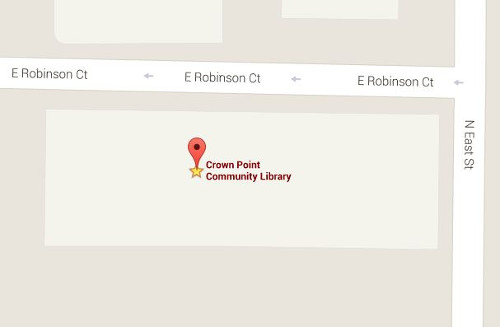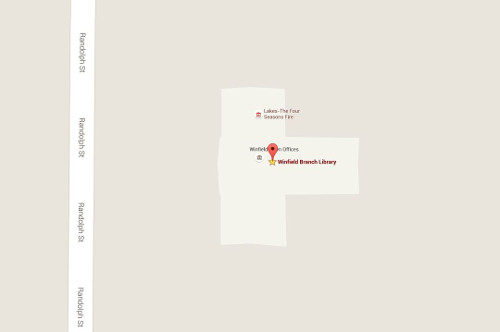50 Years: Martin Luther King, Robert Kennedy, and Indiana
April 4, 2018 marks the 50th anniversary of the assassination of Martin Luther King, Jr. After spending over a week in Memphis helping with the sanitation workers strike, King eloquently spoke of his journey for civil rights for all on April 3rd. Known as “I’ve Been to the Mountaintop,” it became one of his most important speeches, not just because it was his last, but for the message he proclaimed. He also almost foretold his future, speaking about his place in the world.
“Well, I don’t know what will happen now; we’ve got some difficult days ahead. But it really doesn’t matter to with me now, because I’ve been to the mountaintop. And I don’t mind. Like anybody, I would like to live a long life — longevity has its place. But I’m not concerned about that now. I just want to do God’s will. … I’ve seen the Promised Land. I may not get there with you. But I want you to know tonight, that we, as a people, will get to the Promised Land. “
Just one day later, while preparing to go to a planning meeting for the next sanitation workers protest, King was struck down but a gunshot to the neck on the balcony of the Lorraine Motel in Memphis. Those around him tried to stop the bleeding, but their valiant attempts were unsuccessful as he lost his life less than an hour later at the hospital. We continue to honor the work of Dr. Martin Luther King, Jr. every year with a holiday on his birthday.
While King was engrossed in the situation in Memphis, Robert F. Kennedy was beginning to pick up his campaign for the 1968 presidential primaries. Having only entered the race a month earlier, Kennedy was behind in polls and campaigning. President Lyndon Johnson decided not to run for re-election, thus providing the opening Kennedy needed. He decided to concentrate on the Indiana primary of May 7th, hoping that a full-out campaign in April would result in a second place showing (thinking he would definitely lose to former Indiana Gov. Roger Branigin). On April 4th, Kennedy spent the earlier part of the day on the campuses of the University of Notre Dame and Ball State University. He was asked at both locations about his feelings on race relations; he responded that he hoped people could see the best in others and work together.
Upon finishing his second stop of the day, getting ready to board a plane to Indianapolis, Kennedy was informed that King was shot. Visibly shaken, Kennedy wondered aloud how this could happen again, referring to an assassination of his brother, President John F. Kennedy. It wasn’t until he landed, that he learned King was dead. The original plan was a rally to officially open his Indiana campaign headquarters that night. Although some advised against him keeping his appearance, including his campaign personnel, security, and even his speechwriters, Kennedy felt strongly he needed to go to the rally. Even one police officer agreed with Kennedy. Upon learning about King’s assassination while waiting for Kennedy to arrive in Indianapolis, advisor John Bartlow Martin asked a nearby police officer if Kennedy should still attend the rally in a predominantly black neighborhood. The officer replied, “I sure hope he does. If he doesn’t, there’ll be hell to pay.”
Kennedy wrote a few notes on an envelope in the car on the way to the rally. Although a few in the crowd had already learned of King’s death, most had not. Kennedy arrived and stepped upon the back of a flatbed truck to speak to the crowd. The excited crowd quickly quieted as Kennedy stepped forward.
“Ladies and gentlemen, I’m only going to talk to you just for a minute or so this evening, because I have some very sad new for all of you. Could you lower those signs, please? I have some very sad news for all of you, and, I think, sad news for all of our fellow citizens, and people who love peace all over the world; and that is that Martin Luther King was shot and was killed tonight in Memphis, Tennessee.”
Audience members shouted cries of “No!” and began to cry. Kennedy paused for the audience to collect and then he went on to reflect on the type of man King was, and the vision he shared for the country. Kennedy spoke that we all can share in King’s vision and not be tempted by the anger felt on that night. He spoke about how he, too, felt that temptation when his brother was killed, that he had to make an effort to understand and go beyond those feelings, and that he found solace in his favorite poet, Aeschylus. After quoting part of a poem, Kennedy spoke again about how we can rise above prejudice and anger.
“So I ask you tonight to return home, to say a prayer for the family of Martin Luther King – yeah, it’s true – but more importantly to say a prayer for our own country, which all of us love – a prayer for understanding and that compassion of which I spoke. … We will have difficult times in the future. … But the vast majority of white people and the vast majority of black people in the country want to live together, want to improve the quality of our life, and want justice for all human beings that abide in our land.”
He reflected once more on the poetry that helped him and then closed with this: “Let us dedicate ourselves to that, and say a prayer for our country and for our people.”
It was a reserved, stunned applause that the audience provided after Kennedy finished and left for his hotel. That audience heeded his words and sentiment. While other cities around the country saw distress in various forms, the riots the officer who spoke to Martin feared didn’t transpire in Indianapolis; Kennedy and his thoughtful speech were the main reason.
Upon returning to the hotel, he followed his own counsel, saying a prayer for the family and the country, calling King’s wife to offer his sympathies and to inquire if there was anything he could do for her. Kennedy helped King’s family prepare for the days ahead, providing transport of King’s body from Memphis to Atlanta, as well as other things they needed during this time. Kennedy, as well as others, paused campaigning out of respect for King, until after the funeral. A month later, Kennedy won the Indiana primary. Many believe that it was his speech on the night of King’s death that led the way toward his victory in Indiana. Two months later, Kennedy suffered the same fate as King; he was killed by an assassin’s bullet, taken down while fighting for what he believed was right for all citizens of this country.
Less than 30 years later, the location of the Kennedy speech, now known as Dr. Martin Luther King Jr Park, had a groundbreaking ceremony to memorialize the site. Indiana Governor Evan Bayh, President Bill Clinton, Robert Kennedy’s wife Ethel Kennedy, his brother Senator Ted Kennedy, and King’s sons Martin Luther King III and Dexter Scott King, as well as over 5000 attendees, were present for the groundbreaking on May 14th, 1994. After a nationwide search, Indiana artist Greg Perry was selected and announced a day after the Martin Luther King holiday in 1995 to create the memorial. A Landmark for Peace opened later that year featuring the silhouettes of King and Kennedy with outstretched hands. They illustrate the reaching for peace, the attainability of peace that both men sought in their lives’ work.
The memorial was rededicated on April 2, 2005. It has been a place of reflection and celebration for over 20 years. Earlier this year, the Indiana congressional delegation, led by Representative Carson and Senators Donnelly and Young, filed legislation to designate the park and the memorial as a National Historic Landmark. It is their hope that the designation will happen prior to the 50th anniversary this April. It was Kennedy and King’s hope that peace would be the way of our country and not just a symbol. A Landmark for Peace is a symbol we can all honor and hold in esteem, just like the men the memorial represent.


